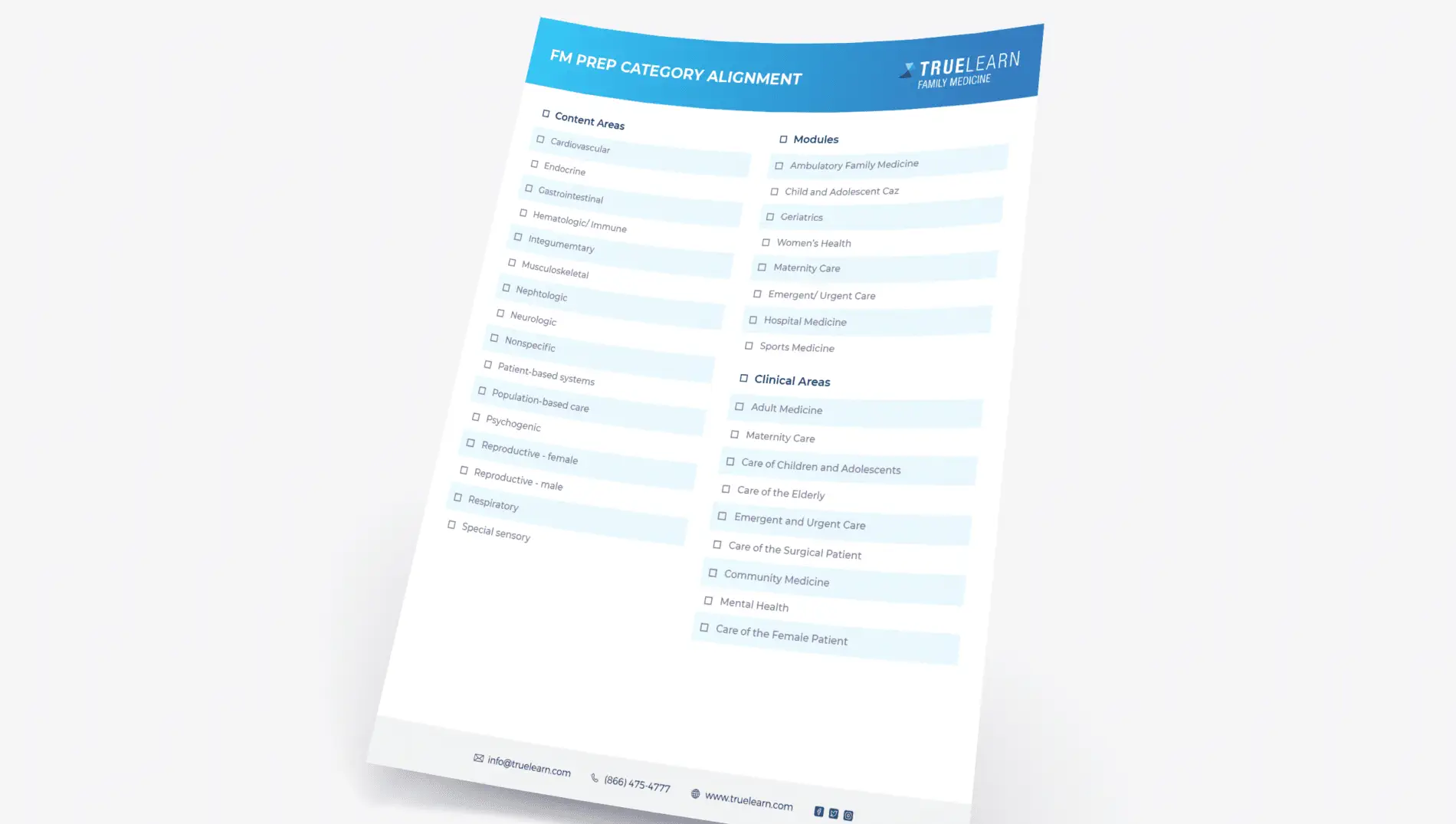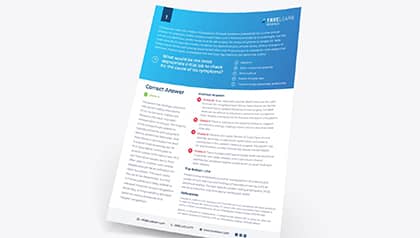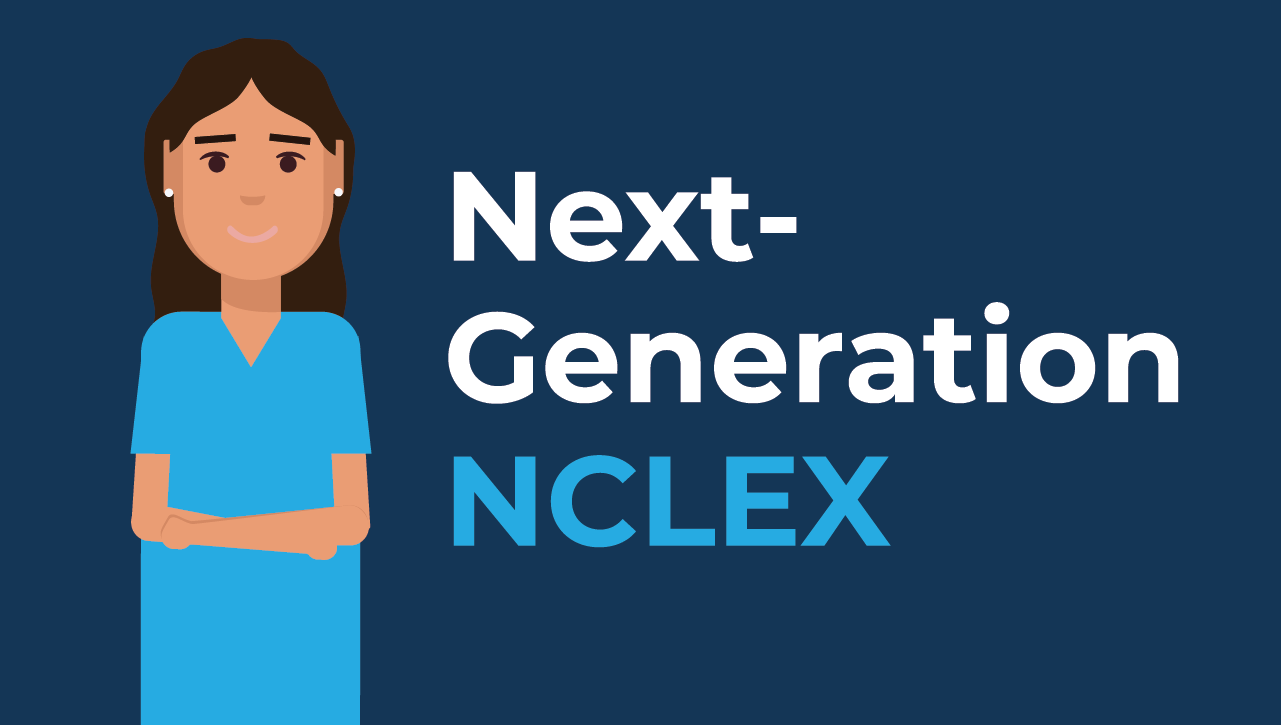What You Need To Know About The NCLEX
The NCLEX-RN® (National Council Licensure Examination) is the licensure exam that is taken to become a Registered Nurse. As a nursing student, it is one of the most important tests you’ll take on your journey. In 2022 the pass rate for first time US-educated test takers was 79%, showing that it is a challenging exam. In this post we will go over some important information you need to know if you’re preparing for the NCLEX-RN.
NCLEX Topics
The exam covers a wide variety of topics but the framework of the exam links back to four major client needs. Below is a breakdown of client needs and the percentage of test items you may encounter on the test. Furthermore, the client needs questions are integrated with the following processes: nursing process, caring, communication and documentation, teaching and learning, and culture and spirituality. You can read more about the content on the NCLEX candidate bulletin where each client need is broken down into related nursing activities.
| Client Needs | % of items | |
| Safe and Effective Care Environment | Management of Care | 15-21% |
| Safety and Infection Control | 10-16% | |
| Health Promotion and Maintenance | 6-12% | |
| Psychosocial Integrity | 6-12% | |
| Physiological Integrity | Basic Care and Comfort | 6-12% |
| Pharmacological and Parenteral Therapies | 13-19% | |
| Reduction of Risk Potential | 9-15% | |
| Physiological adaptation | 11-17% |
How Long Do I Need to Study for the NCLEX Exam?
The length of time needed to study will vary person to person, but on average anywhere from four to eight weeks should be a sufficient amount of time to study. Consider your personal needs based on previous knowledge, study habits, and the amount of hours per week you can dedicate to studying. A good way to figure out how much time you need is by taking a few practice exams to figure out your weaker areas. With that knowledge you can determine how much time you think you need to sharpen up your knowledge base.
How Many Questions Are On The Exam?
You may encounter anywhere from 85-150 questions on the exam. There are three case studies, each consisting of 8 items, to measure clinical judgment and the rest of the exam questions are based on the content areas above. Each case study item consists of multiple questions that measure a candidate’s ability to recognize cues, analyze cues, prioritize hypotheses, generate solutions, take action and evaluate outcomes. There are 15 pretest questions which are unscored. You will have five hours to complete the exam.
How Much Do I Need to Prepare for NGN Items
While Next-Generation NCLEX (NGN) type questions are formatted differently than traditional NCLEX questions, the exam content has not changed. The content focus of the exam is the same as it has always been. This being said, you don’t need to study any longer for the new NGN exam versus the previous exam. To prepare, you should become familiar with the different question formats you may encounter, and also become familiar with answering case study questions. During your studies, spend some time practicing critical thinking and clinical reasoning. You may encounter any of the follow types of questions:
- Multiple choice
- Drop-Down
- Drag and Drop
- Hotspot (highlight)
- Extended Multiple Response (select all that apply)
- Matrix/Grid
How Is the NCLEX Scored & What Is Needed to Pass
With the integration of NGN items, the scoring has switched from dichotomous scoring (either correct or incorrect) to polytomous scoring. With polytomous scoring candidates are able to receive partial credit for test questions. With the high complexity of the new test items, partial credit scoring allows for a more precise measurement of knowledge. There is no definitive score needed to pass, the test will just continue until the system is 95% sure of your ability.
Things You Need to Know Before Taking the NCLEX
- The importance of practice questions! Integrate practice questions into your study routine. Practice questions are a key component of any well rounded study plan. Take multiple practice exams and use it to gauge where you should focus your efforts. When taking practice questions be sure to spend time going over the answer rationales to help enhance your understanding.
- What to expect on exam day. To help relieve some anxiety, spend time learning what to expect on exam day. Feeling prepared for what to expect can help boost your confidence! You can find more information about exam day on the NCLEX website.
- The test is adaptive. This means if you get a question wrong your next question will be easier. If you get a question right your next question will be even harder. This can throw some people off, but knowing this ahead of time can help calm your nerves.
Are you looking for a NCLEX-RN question bank? Let TrueLearn help! Our NCLEX-RN QBank has over 1,000 practice questions with high quality answer explanations and a Picmonic nursing school mnemonic add-on. Our dashboard is integrated with your performance measurements so you can quickly see your strengths and weaknesses. With our first time pass guarantee, you can feel confident knowing that we’ve got your back!


